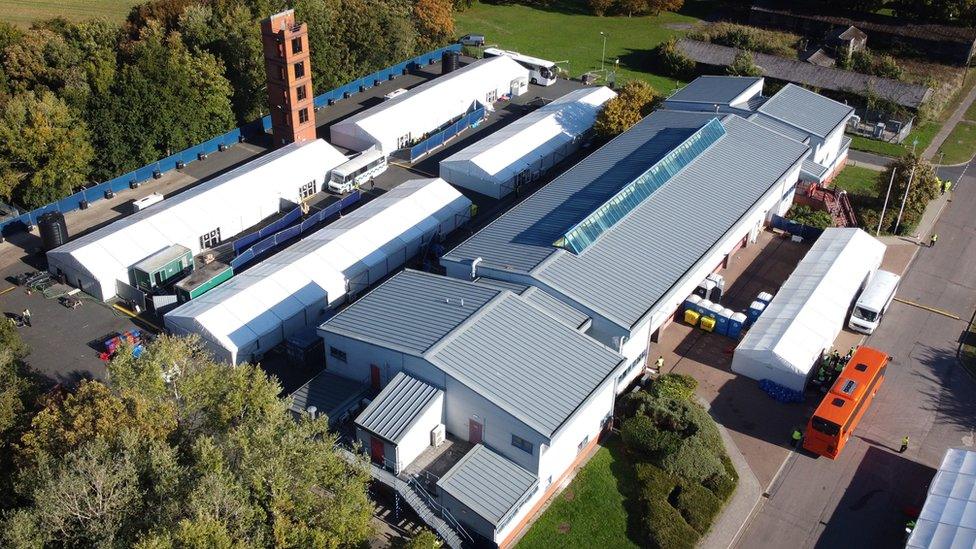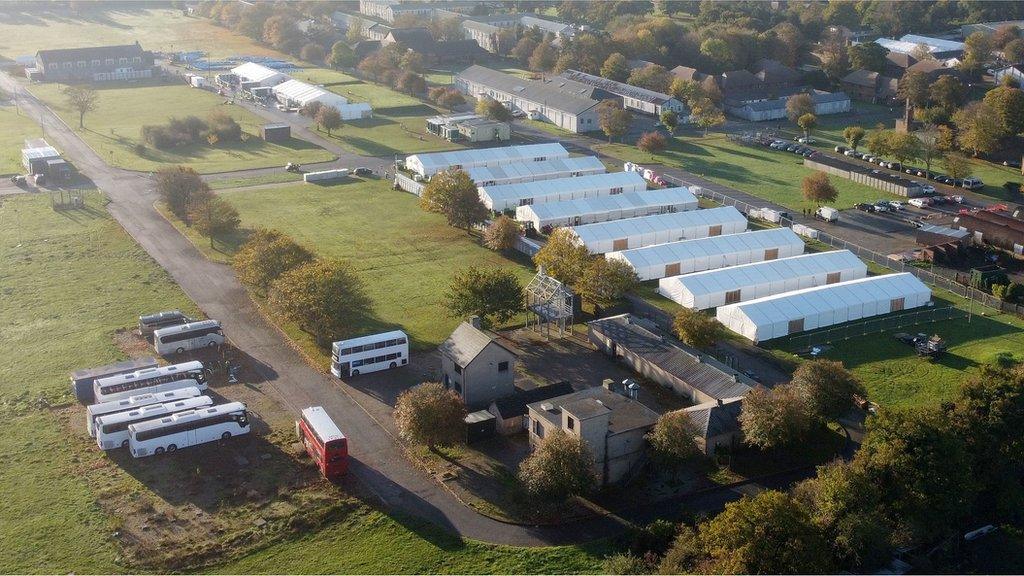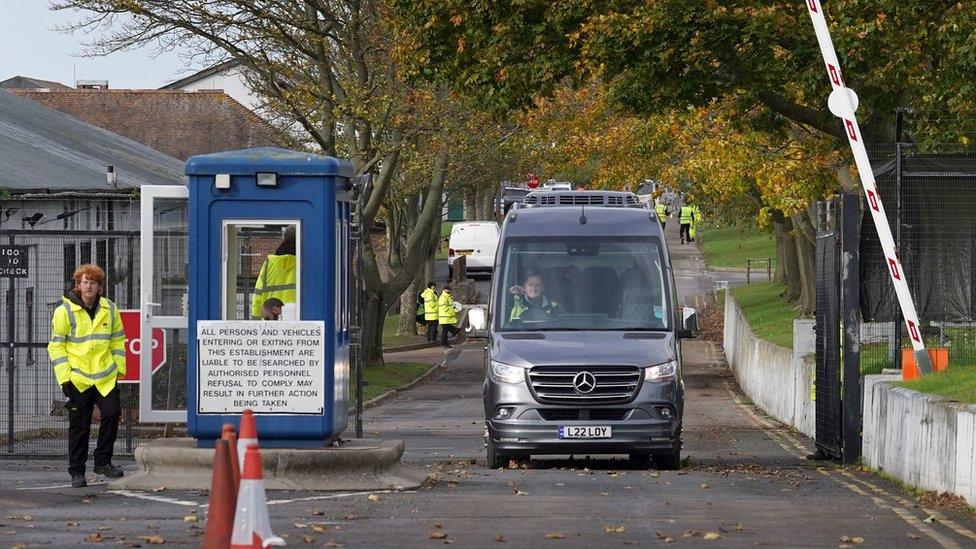Migrants to get diphtheria jab at processing centre after cases spike
- Published

Migrants at the Manston Airport detention centre are to be vaccinated
Migrants at the Manston processing centre are to be vaccinated against diphtheria after dozens of cases were confirmed in England.
The UK Health Security Agency (UKHSA) said it followed a spike in infections.
The agency said 39 diphtheria cases had been identified in asylum seekers in England this year up to 10 November.
On 1 November, immigration minister Robert Jenrick said there had been four cases at the Kent centre but infection had occurred prior to arrival.
He added reports of diphtheria, MRSA and scabies at Manston - where concerns have been raised about overcrowding - had been "exaggerated".
Dr Gayatri Amirthalingam, the UKHSA's deputy director of public health programmes, confirmed work was ongoing with the Home Office to roll out vaccines and antibiotics at Manston.
It comes as the figure for cross-Channel migrant arrivals nears 40,000 this year. A provisional total calculated by the Press Association stood at 39,913.
'Sometimes fatal'
The UKHSA has warned that accommodation settings should be considered "high-risk for infectious diseases".
Diphtheria is a highly contagious infection that affects the nose and throat and sometimes the skin. It can be serious and sometimes fatal, according to the NHS website, external.
"The UKHSA has been working closely with the Home Office at the Manston reception centre where there have been a number of cases of diphtheria and other infections," Dr Amirthalingam said.
"We recommend that diphtheria vaccination and antibiotics are offered to people at the centre and all those who have moved on recently.
"This is currently being operationalised and we are working with the Home Office and the NHS to make this happen."
UKHSA guidance published on Friday said the agency's incident management team had recommended "mass antibiotic prophylaxis and mass vaccination", due to a "high prevalence" of toxigenic diphtheria infection.
Treatment was recommended for asylum seekers arriving at reception centres after 31 October and before 12 December, including those sent to hotels.
A national briefing was also sent to NHS staff to highlight "the importance of early diagnosis".
The Home Office confirmed it was working alongside the UKHSA and NHS to provide vaccines.
A Home Office spokesman said: We are aware of a very small number of cases of diphtheria reported at Manston. Full medical guidance and protocols have been followed.
"We take both the welfare of those in our care and our wider public health responsibilities extremely seriously.
"As such, we will continue to work closely with the NHS and UK Health Security Agency to support the individuals affected and limit transmission of the infection, including providing diphtheria vaccines."
Related topics
- Published21 December 2022

- Published8 November 2022
